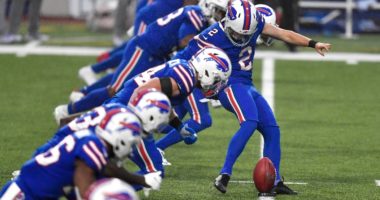Game On: New York State Gaming Commission Releases Online Sports Betting RFA

Better late than never. And actually, the New York mobile request for applications (RFA) didn’t come too late.
The document that the New York State Gaming Commission didn’t publicize by the state-mandated July 1 deadline came quicker than the rumored two-week delay. But it was still over a week late.
Regardless, the contents of the RFA lays out exactly how a company interested in partnering with the state for New York online sports betting can snag a license to do so.
The 130-page document also details how the Commission should decide on candidates’ worthiness. Perhaps most important, it starts a clock for interested parties and future bettors in the Empire State.
How will the NYSGC evaluate submissions?
The commission broke down the RFA into nine sections, each governing a component of sports betting apps’ operations. Right now, the most pertinent section for interested parties is how the evaluation criteria and the selection process.
As state law dictates, the NYSGC will use a point system to determine applicants’ qualifications. That point system has several components. All of them add up to a final score, and a higher score is better. The first component of the system is the Technical Factor.
The commission’s members will collectively award each applicant points based on their assessment of the following:
- Expertise in the market of the applicant and the applicant’s proposed operators: Up to 25 points
- Integrity, sustainability, and safety of the mobile sports wagering platform: Up to 20 points
- Past relevant experience of the applicant and the applicant’s proposed operators: Up to 15 points
- Advertising and promotional plans: Up to 7.5 points
- Capacity to rapidly and efficiently bring authorized sports bettors into the applicant’s platform: Up to 2.5 points
- Applicant’s efforts to foster racial, ethnic, and gender diversity in applicant’s workforce and each of the applicant’s proposed operators’ workforces: Up to 2.5 points
- Other factors impacting revenue to the state: Up to 2.5 points
The maximum score in this category is 75 points. The RFA states that an applicant must receive a score of at least 60 points in order to merit further consideration. For qualifying applicants, two other points of consideration are all about revenue sharing.
Points for spreading the love in NY
To satisfy another tenet of state law, the NYSGC will award five bonus points to a licensee that has at least one agreement “that provides for revenue-sharing related to mobile sports wagering with Native American tribes or nations that is a party to a compact with the State.” An example of such a party would be the Oneida or Seneca nations, which operate NY tribal casinos.
A final opportunity for a candidate to earn points is all about how much of its revenue it is willing to give the state. The greater the percentage, the more points the applicant gets. The scale in the RFA looks like this:
- 12.5% to 30%: three points
- 30% to 40%: 10 points
- 40% to 50%: 15 points
- 50%: 20 points
The text also says that for every percentage point over 50% a candidate offers, that applicant will get an extra point. So, for example, if an applicant offers to give the state 55% of the hold, the point total here would be 25 points. With all of these elements taken into consideration, an applicant’s total possible score is 150.
- 75 points for the Technical Factor
- 5 points for partnering with a tribal gaming entity
- 20 points for offering a 50% revenue share
- 50 bonus points for offering to give the state 100% of the revenue (which obviously isn’t going to happen, but still is mathematically possible)
Now that the commission has laid out the scoring system, it’s similarly just as important to understand how many companies might be up for consideration. The RFA gives some insight into that as well.
Could a joint bid rule the day?
The text makes licensing applicants to provide at least two platform providers and at least four operators a priority. However, it does not mandate that candidates submit competing bids. They can combine their resources.
New Yorkers could see companies that compete against each other in different jurisdictions team up in this context. As long as they would operate as two separate platform providers with at least four operators after licensure, they could submit a joint bid.
What advantages could that have? For one thing, it would save them some upfront expense. The RFA states that licensees must pay a fee of $25 million after selection. Additionally, if one party to the bid has a strength that complements another’s weakness in the Technical Factor, it would shore up their potential score to team up.
For a candidate that doesn’t have a partnership with a New York tribal gaming operator, it would also be beneficial to join forces with another candidate that does have such a deal in place. However, there are some possible disadvantages to such a collaboration.
One downside is having to share a customer database and revenue with such a partner. Elsewhere, not all sportsbooks fare equally. In most other markets, one or two operators claim a large swath of handle on a regular basis. If the operators on one side of this kind of partnership are heavily outperforming their counterparts on the other side, they would essentially be subsidizing their partners.
Does that mean New York is headed for a state-sanctioned monopoly in terms of online sports wagering? Not necessarily. There is no cap on the number of licenses the NYSGC can award. The RFA lays out the procedure for creating more platform providers.
Keep going until the math doesn’t work
The language here states that the commission can issue more licenses past the point where the state has at least two platform providers and four operators as long as it’s “in the best interest of the state.” Essentially, that means whether the state could expect to receive more tax revenue from additional licensees.
As long as the commission’s market analysis shows that adding more licensees would mean more revenue, it will keep handing out licenses. At this point, it’s difficult to discern what that threshold would be. To a large extent, it depends on exactly what the bids look like. That’s completely unknown at this point.
A final item of note is that the RFA provides an incentive for candidates to give the state a higher revenue share. Candidates who part with at least 50% of their revenue will get a license that is good for a decade. Licensees who provide a lower rev-share will have to apply for renewal sooner.
So, what does this all mean for sports bettors in New York? The most important thing to take away is that a 30-day countdown has now begun.
Parties who want to try their hands at a New York mobile sports betting license now have 30 days to get their applications in. The NYSGC will then have up to 150 days to select its mobile betting partners.







